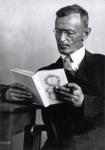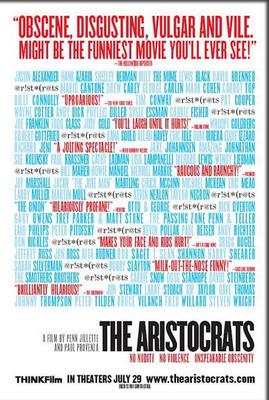A Little Learning Is a Dangerous Thing
 Just on the off chance that anybody's wondering why yours truly has waxed so silent over the month of August, I can claim only the vicissitudes of business ownership and of course parenthood. That and a tendency to write putative blog postings that read more like entries for the Catholic Encyclopedia or some other such ponderous and all-encompassing work. I've scrapped a number of entries that started with a simple theme and just grew and grew. As I love to tell other writers (do as I say, not as I do!), any fool can make something complex of something simple, but it takes a true genius to make something simple out of something complex.
Just on the off chance that anybody's wondering why yours truly has waxed so silent over the month of August, I can claim only the vicissitudes of business ownership and of course parenthood. That and a tendency to write putative blog postings that read more like entries for the Catholic Encyclopedia or some other such ponderous and all-encompassing work. I've scrapped a number of entries that started with a simple theme and just grew and grew. As I love to tell other writers (do as I say, not as I do!), any fool can make something complex of something simple, but it takes a true genius to make something simple out of something complex.The subject of encylcopedias brings to mind out an interesting little tiff between two writers that I happened to read about recently. It started with Joe Queenan's review, in the New York Times, of The Know-It-All: A Little Learning Is a Dangerous Thing by A. J. Jacobs. Queenan savaged Jacobs's book, in which the latter set out (clearly with tongue in cheek) to read the entire Encyclopedia Britannica and then present the great knowledge he had thus obtained.
Queenan castigates Jacobs for a variety of sins, some of which I personally consider almost castigation-worthy: as JQ writes, "the premise of the book is completely wrong. The animating idea of this misguided endeavor is that corralling a vast array of unrelated facts will, in and of itself, make a person more interesting.... [But f]acts absorbed without context merely magnify the intellectual deficiencies of the autodidact, because a poorly educated person does not know which facts are important."
Besides his praiseworthy use of the word animating, one of my favorite terms (thanks to a book
 I basically inhaled as a voracious twenty-one-year-old, Contemporary Radical Ideologies by A. James Gregor), I agree with Queenan's antipathy for the superstition that acquiring what CNN used to annoyingly called "factoids"--useless information presented without context--constitutes some form of real knowledge. Long before the present media age, Hermann Hesse (pictured right) basically ripped such mentality a new one in his rather curious Magister Ludi. And I've long been a believer in the idea that wisdom and knowledge are far from the same thing.
I basically inhaled as a voracious twenty-one-year-old, Contemporary Radical Ideologies by A. James Gregor), I agree with Queenan's antipathy for the superstition that acquiring what CNN used to annoyingly called "factoids"--useless information presented without context--constitutes some form of real knowledge. Long before the present media age, Hermann Hesse (pictured right) basically ripped such mentality a new one in his rather curious Magister Ludi. And I've long been a believer in the idea that wisdom and knowledge are far from the same thing.One thing I found interesting about Queenan's article, though, is something he wouldn't necessarily care to point out: that at earlier points in his career, he too could be described in the same terms by which he paints Jacobs: "corny, juvenile, smug, tired." That was my impression of him years ago, when I first read him in the American Spectator (this was long before that publication began making headlines, by which point I had long since moved on.) Queenan seemed to me to embody the more base aspects of P. J. O'Rourke, without the latter's redeeming wit and deep common sense. And while I'm glad to see that Queenan has matured a great deal over the years, I still think he was a little "rough on the Beave."
Jacobs thought the same thing, obviously; hence his equally witty rebuttal in the same publication. It's always a tricky thing when writers respond to critics in print or otherwise, but Jacobs comported himself well, dealing out plenty of self-deprecating wit to balance the abundant Queenan-deprecating responses. And when it comes to authors vs. critics, I'm sorry, but I'm almost always going to be on the side of the authors, having experienced my own share of nasty reviews, either public or private (i.e., in the form of comments by advisors on scholarly publications for which I was writing.) For instance, there was this one... uh, person who gave my Beatles book such a blistering review that I decided he was simply setting out to find fault--and I confirmed this when a little research revealed that he'd written his own poorly received Beatles book years before. I sat down to write a withering response to the publication in which his review appeared, but thought better of it, and here these many years later it's still buried somewhere deep on my hard drive.
But Jacobs, on the other hand, did manage to write a rebuttal that makes his case effectively. In the process, he and Queenan together managed to put together the most entertaining literary pissing match (excuse my French) since V. S. Naipaul's dispute with Paul Theroux a few years back. And after all, isn't it much easier to argue about writing than it is to actually write?




